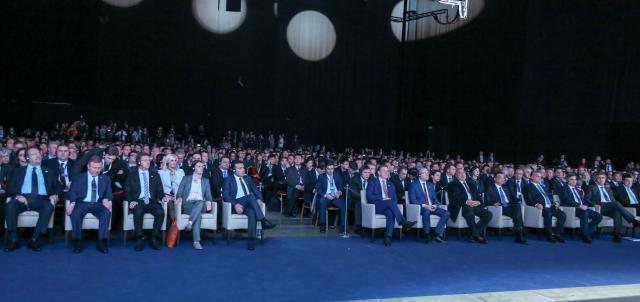FT: What's behind 16+1, and why EU fears China
<a href="https://www.ft.com/content/16abbf2a-cf9b-11e7-9dbb-291a884dd8c6" class="text-link" target= "_blank">"Brussels rattled as China reaches out to Eastern Europe,"</a> writes the Financial Times, in an article about <a href="http://www.b92.net/eng/news/politics.php?yyyy=2017&mm=11&dd=27&nav_id=102899" class="text-link" target= "_blank">Monday's China-Central and Eastern Europe summit.</a>
Tuesday, 28.11.2017.
12:11

FT: What's behind 16+1, and why EU fears China
Another high-ranking European diplomat, who spoke under the same condition, called it "only see the tip of the iceberg.”“The (16+1 is) dealing with many things. Some of them are touching on EU competences, or they are going into new areas where there are already initiatives between the EU and China," he said.
According to the report, the EU is worried that Beijing's closer ties with some poorer nations in Europe will influence the entire bloc's policy.
"In Hungary it is hailed as the 'Eastward Opening'. Serbian authorities see it as the glue in a 'reliable friendship', while the Polish government describes it as a 'tremendous opportunity'," the article said, and added:
"Yet the 16+1, a grouping of 16 central and eastern European countries led by China, receives more caustic reviews in leading EU capitals, with diplomats fearing it could be exploited by Beijing to undermine union rules and take advantage of growing east-west tensions in the pact itself."
"It is clear that Beijing’s star is rising" in central and eastern European nations - including in Serbia, which has already has large infrastructure contracts, writes the FT.
"For some in the EU there are two main concerns. The first is that China may intensify efforts to use the influence it is building in central and eastern Europe to frustrate aspects of the EU’s common China policy. The second is that some 16+1 countries may exploit strong ties with China to buttress negotiating positions against Brussels," the newspaper said, and added:
"European diplomats say such dynamics could undermine Brussels’ effectiveness in often fractious relations with its second-largest trade partner. One concern is that China’s push for guaranteed contracts for its companies will undermine the EU’s single market rules on public procurement."
"Passions are already running high," notes the article - German Vice-Chancellor and Foreign Minister Sigmar Gabriel in September called on Beijing "to respect the concept of 'one Europe'," and said that "if we do not succeed for example in developing a single strategy towards China, then China will succeed in dividing Europe.”
The EU is also wary of the deals made during the summit, including "Hungary’s failure to open its section of a USD 2.9bn, 350km high-speed rail line from Belgrade to Budapest to competitive tender" that has triggered "an investigation by the commission into whether the project violated EU laws."
In Serbia, writes the FT, "the lure of China on one side and the tug of the EU on the other is creating a division of loyalties."
"The threat of an EU screening process could repel the Chinese investment that Serbia requires to develop sufficiently for EU accession," economist Vladimir Krulj, special economic adviser to the Serbian government, wrote in the newspaper.
























































Komentari 12
Pogledaj komentare